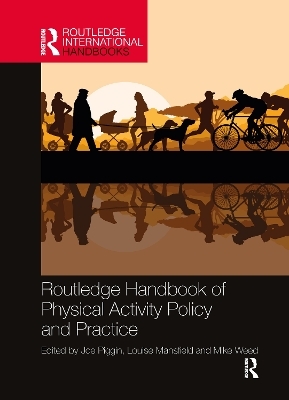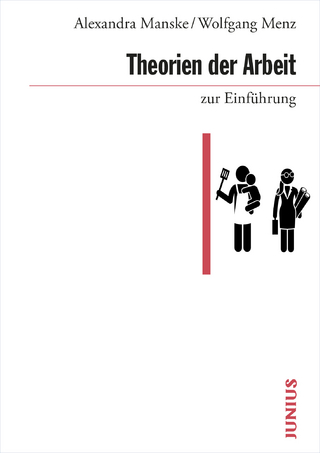
Routledge Handbook of Physical Activity Policy and Practice
Routledge (Verlag)
978-0-367-89689-8 (ISBN)
Physical activity, inactivity and their relationship to health are serious concerns for governments around the world. This is the first book to critically examine the policy and practice of physical activity from a multi-disciplinary, social-scientific perspective. Moving beyond the usual biophysical and epidemiological approaches, it defines and explores the key themes that are shaping the global physical activity debate.
Unrivalled in its scale and scope, it presents the latest data on physical activity from around the world, including case studies from Europe, North and South America, Africa and Asia. Drawing on social, economic and behavioural sciences, it covers contexts from the global to the local and introduces the dominant ideas which inform the study of physical activity. Its 41 chapters examine the use of different forms of evidence in policymaking, the role of organisations in advocating physical activity, and the practical realities of public health interventions.
The Routledge Handbook of Physical Activity Policy and Practice is a landmark publication for all students, academics, policymakers and practitioners interested in the social-scientific study of sport, exercise, physical activity and public health.
Joe Piggin is a Senior Lecturer in Sport Policy and Management in the School of Sport, Exercise and Health Sciences at Loughborough University, UK. Joe’s research covers two main areas, namely sport policy translation into marketing and programmes, and physical activity policy. He has published articles on physical activity policy in New Zealand, the UK and in a global context. Joe holds a PhD from the University of Otago, New Zealand. Louise Mansfield is research lead for welfare, health and wellbeing (Institute for Environment, Health and Societies) and Senior Lecturer in Sport, Health and Social Sciences at Brunel University London, UK. Her research focusses on the relationship between sport, physical activity and public health. She is interested in partnership and community approaches to physical activity engagement and issues of health, wellbeing, inequality and diversity. She has led research projects for the Department of Health, Youth Sport Trust, Sport Scotland, ESRC, Medical Research Council, Macmillan Cancer Support, Public Health England and Sport England. She sits on the editorial boards for Leisure Studies, Qualitative Research in Sport, Exercise and Health and the International Review for the Sociology of Sport. Mike Weed is Pro Vice-Chancellor (Research and Enterprise) and Professor of Applied Policy Sciences at Canterbury Christ Church University, UK. Drawing on a wide range of social science disciplines, including social psychology, sociology, economics, geography and policy science, his work has focussed on informing, improving and interrogating policy in the applied domains of public health, physical activity, physical education, sport, tourism, transport, urban development and major events. Professor Weed is Strategic Director of the Centre for Sport, Physical Education and Activity Research (SPEAR), editor-in-chief of the Journal of Sport and Tourism, and sits on the editorial boards of Qualitative Research in Sport, Exercise and Health and Psychology of Sport and Exercise.
PART 1: Policy Issues in Physical Activity THEME A: Policy Concepts and Contexts 1. Concepts and Theories in Physical Activity Policy [Joe Piggin] 2. Putting Physical Activity on the Policy Agenda [Catherine Woods and Nanette Mutrie] 3. The Global Physical Inactivity Pandemic: An Analysis of Knowledge Production [Joe Piggin and Alan Bairner] 4. Is Exercise Medicine? [Dominic Malcolm and Emma Pullen] 5. Sport and Physical Activity for Health and Wellbeing: Choice and Competing Outcomes [Paul Downward] 6. The Imperative of Physical Activity in Public Health Policy and Practice [Louise Mansfield] THEME B: Evidence and Policy 7. The Interpretation and Misinterpretation of Biomedical Evidence to Inform Physical Activity Guidelines [Mike Weed] 8. Only Connect: How Social Science Can Improve Physical Activity Guidance [Tess Kay] 9. The Use of Behavioural Evidence in PA Policy: Is PA Policy Evidence Based? [Fiona Gillison and Fay Beck] 10. Tracing Translations: The Journey from Evidence to Policy to Physical Activity Promotion Campaigns [Jessica Lee, Benjamin Williams and Bernadette Sebar] 11. Measuring Physical Activity [Dale Esliger, Andrew Kingsnorth and Lauren Sherar] THEME C: Policy Communities and Physical Activity 12. Physical Activity and Mental Health: A Focus on Depression [Guy Faulkner and Markus Duncan] 13. Neighbourhood Accessibility and Active Travel [Hugh Barton, Michael Horswell and Paul Millar] 14. The Environment, Physical Activity, Recreation and the Outdoors [Barbara Humberstone, Heather Prince and Lois Mansfield] 15. Sport Policy [Pippa Chapman] 16. Young People, Physical Activity and ‘Active Play’ Promotion in Canada [Stephanie Alexander] 17. Education, Physical Education and Physical Activity Promotion [Andy Smith, Ken Green and Miranda Thurston] PART 2: Practices THEME D: People, Places and Physical Activity 18. Physical Activity and Ageing [Cassie Phoenix and Emmanuelle Tulle] 19. Girls, Women and Physical Activity [Philippa Velija and Louise Mansfield] 20. Disability and Physical Activity [Toni Williams and Brett Smith] 21. Physical Activity, Families and Households [John Day] 22. Workplace Physical Activity: Theory, Policy and Practice [David McGillivray] 23. Physical Activity in Schools [Jordan Smith, David Lubans and Rodney Lyn] 24. Physical Activity in Prisons [Mark Norman] THEME E: Understanding and Evaluating Practices and Programmes 25. Employing Voluntary Sports Organisations in the Implementation of Physical Activity Policy [Anna Aggestål and Josef Fahlén] 26. Physical Activity Opportunities for Young People: A Case Study of StreetGames [Carolynne Mason] 27. Schools, Corporations and Promotion of Physical Activity to Fight Obesity [Darren Powell and Michael Gard] 28. The Olympic Games and Physical Activity Promotion [Paul Bretherton and Billy Graeff] 29. The Role of Evaluation in School Sport Policy, Provision and Participation: Change4Life School Sports Clubs [Abby Foad and Michelle Secker] 30. Linking Physical Activity and Health Evaluation to Policy: Lessons from UK Evaluations [Andy Pringle, Jim McKenna and Stephen Zwolinsky] 31. Modelling the Cost Effectiveness of Physical Activity Interventions: The Case of GP Based Interventions [Nana Anokye] 32. Cycling: A Path to Physical Activity through Transportation, Sport and Leisure [Richard J. Buning and Heather J. Gibson] 33. ‘Will to Win’: The Darker Side of Elite Swimming [Jenny McMahon] PART 3: International Perspectives on Physical Activity Policy and Practice THEME F: Physical Activity Policy and Practice Around the World 34. The Arab Region [Mahfoud Amara] 35. Australia [Margaret Heffernan, Constantino Stavros, Kate Westberg, Angela Dobele and Aaron Smith] 36. Brazil [Thiago Hérick de Sá, Marco Almeida and Danielle Keylla Alencar Cruz] 37. The European Union [Mads de Wolff] 38. India [Aman Dhall] 39. South Africa [Tracey Kolbe Alexander and Vicki Lambert] 40. The United Kingdom [Emily Knox] 41. The United States of America [Sean Bulger, Emily Jones and Eloise Elliott]
| Erscheinungsdatum | 02.12.2019 |
|---|---|
| Reihe/Serie | Routledge International Handbooks |
| Zusatzinfo | 19 Tables, black and white; 36 Line drawings, black and white; 3 Halftones, black and white; 58 Illustrations, black and white |
| Verlagsort | London |
| Sprache | englisch |
| Maße | 174 x 246 mm |
| Gewicht | 1047 g |
| Themenwelt | Sachbuch/Ratgeber ► Sport |
| Sozialwissenschaften ► Soziologie ► Mikrosoziologie | |
| ISBN-10 | 0-367-89689-3 / 0367896893 |
| ISBN-13 | 978-0-367-89689-8 / 9780367896898 |
| Zustand | Neuware |
| Haben Sie eine Frage zum Produkt? |
aus dem Bereich


